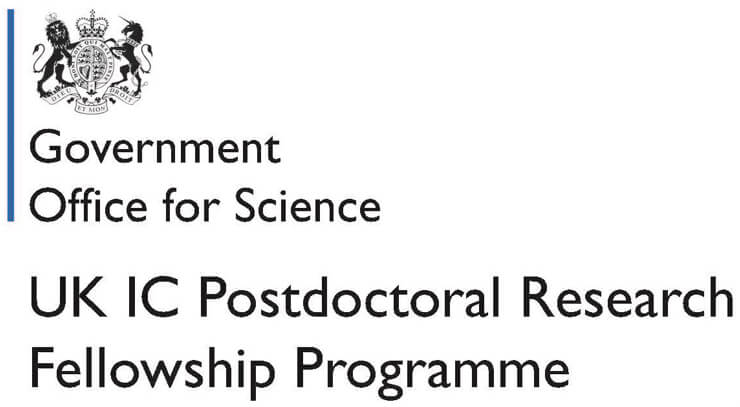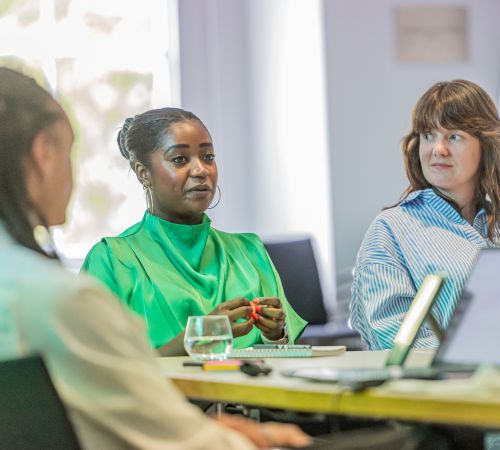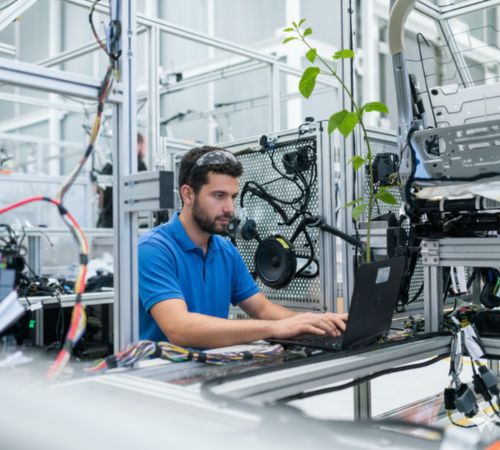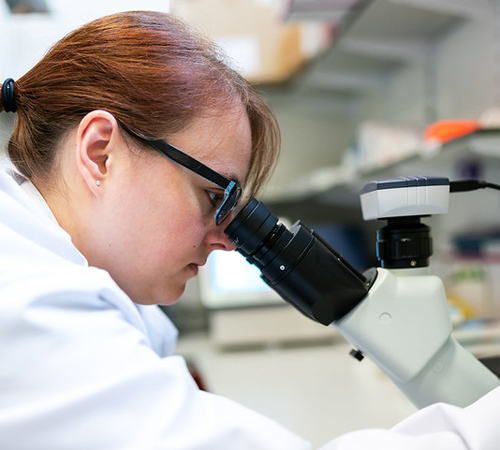Scheme overview
The Government Office for Science offers UK Intelligence Community (IC) Postdoctoral Research Fellowships to outstanding early career researchers in science and engineering. These Fellowships are designed to promote unclassified basic research in areas of interest to the intelligence, security and defence communities. Organisations represented in the UK Intelligence Community for this scheme include the National Protective Security Authority, Defence Science and Technology Laboratory, Home Office, the National Cyber Security Centre, and UK National Authority for Counter-Eavesdropping.
One round of applications is held annually. Research topics are identified each year by members of the IC, and applicants are expected to work with their university research advisor to develop and submit a research proposal that align with their chosen topic.
The research is conducted by the Research Fellows while working in partnership with the University Research Advisor and collaborating with an advisor from the Intelligence Community (IC Advisor).
The Research Fellowships are aimed at early-career researchers from all branches of science and engineering who have up to five years postdoctoral experience. Only citizens of Andorra, Australia, Canada, the EEA, Monaco, New Zealand, San Marino, Switzerland, the UK, the US or Vatican city are eligible to apply.
Each application for the UK IC Postdoctoral Research Fellowships is capped at a maximum contribution of £250,000 over the 2-year period, at 80% of the full economic costs (fEC).

UK IC Postdoctoral Research Fellowship benefits
- Mentoring support from an Academy Fellow to offer advice on research and career development
- Expert advice and support from the IC Advisor
- Reduction of teaching and administrative duties to dedicate time to research
- Training, events and additional funding opportunities
- Networking opportunities with other Research Fellows, Academy Fellows and the IC Community
- Access to the Awardee Excellence Community, that brings together awardees from all career stages and disciplines to share their expertise, to collaborate and to contribute new perspectives to the Academy’s work. The community will give you the opportunity to meet, learn from and support other awardees beyond your immediate cohort, as well as a broader cross section of Academy Fellows through a programme of events, and opportunities to connect in person and online.
Awardees of this fellowship are eligible to apply for a Global Talent Visa under the fast-track process of endorsement.
The Royal Academy of Engineering and the Government Office for Science are committed to equity, diversity and inclusion and welcomes applications from all under-represented groups across engineering. It is the Academy's policy to ensure that no applicant is disadvantaged or receives less favourable treatment because of age, disability, gender reassignment, marriage and civil partnership, pregnancy and maternity, race, religion or belief, sex or sexual orientation.
Research topics 2026
Topic 03 was removed from the list on 19 December 2025 following a request from the funder. Topic numbering has been retained to preserve existing links and references. Applicants should refer to the current list of topics as definitive. We apologise for any inconvenience caused.

1. Scene characterisation using passive radar
2. Instant RF lockdown: a Faraday-on-demand system for prisons and secure facilities
3. Printed power supplies - new materials and technology technology (this topic is no longer within scope of the scheme)
4. Exploring how unusual investment could be detected using open-source data, data visualisation tools and AI
5. Origami antennas with self actuation
6. Optically transparent antennas & metasurfaces
7. Quantum magnetometers for super low frequency magnetic field detection
8. Investigating security and assurance of building automation and control systems (BACS)
9. Attitudes and barriers to adoption of security-minded information management
10. Indicators of military stress and resilience: distinguishing chronic and acute adaptations
11. Energy harvesting to power IoT sensors
12. Preparation, quantification and characterisation of trace explosive samples.

13. Detection and defeat of uncrewed-aerial systems using novel communication or navigation techniques
14. Behavioural futures: modelling public trust in tech-enabled security and crime prevention/fighting
15. Foreign influence in UK politics
16. Engineering biology for sustainable power generation
17. Human intuition and gut instincts in artificial intelligence
18. The role of machine learning (artificial intelligence) in behavioural detection
19. Barriers to bystander behaviour in high trust work environments
20. The future of insider risk – evolving threats
21. Integrating multimodality and context to automatic language analysis
22. Deepfake acoustic profiles
23. Programmable metasurface structures
24. Enhancing interviewer memory
25. Advancing forensic DNA analysis using microhaplotypes: enhancing mixture deconvolution, and ancestry Inference

26. Ocean acoustic modelling for superior environment intelligence
27. Improving synthetic aperture radar image formation through inverse modelling and Bayesian inference
28. Tracing the invisible: novel magnetic resonance isotope analysis for forensic footprints
29. Multi-vector approaches to deanonymising privacy coins
30. Bayesian calibration and inference for agent-based models of cybercrime ecosystems
31. Machine learning-based restoration of degraded speaker audio
32. Bio-inspired molecular sensors for adaptive computing and environmental intelligence
33. Mapping the transnational child sexual offending ecosystem
34. The psychology of influence: effective persuasion in the cybercrime ecosystem
35. The impact of artificial intelligence and machine learning on chemical and biological counter-measures
36. Atomic nuclear and optical clock integration
37. Quantum engineering for quantum sensors
Awardee Excellence Community
Connecting talent, passion and expertise to drive excellence in engineering and change the world for the better
Academy Café events
Our online Academy CAFÉ (Connecting Awardees, Fostering Engagement) series provides engagement for awardees and alumni
Related resources
Support for research
The Academy runs a number of grants to support excellent researchers carry out engineering activities and to enable clo…
Global Talent Visa
The Global Talent visa is a UK immigration category for talented and promising individuals in specific sectors wishing…
